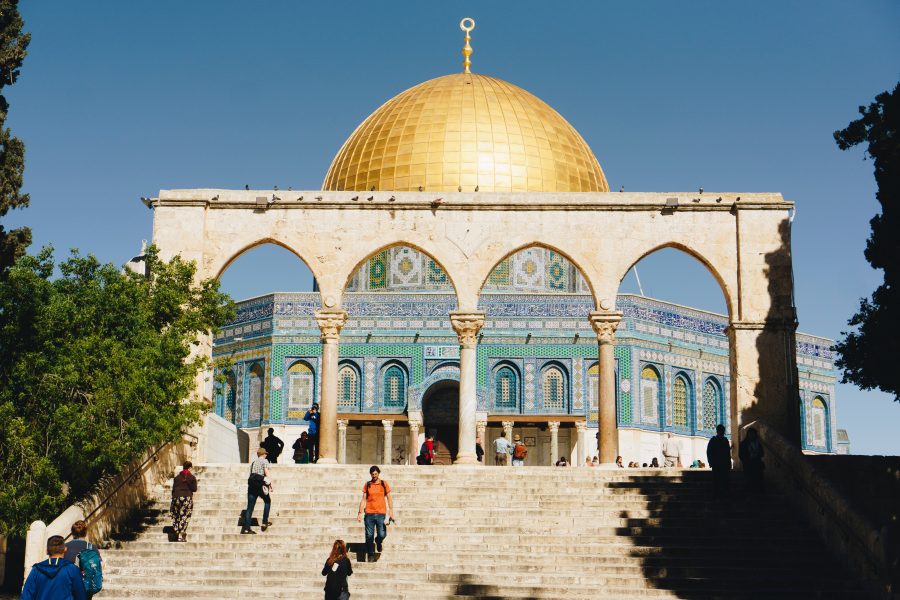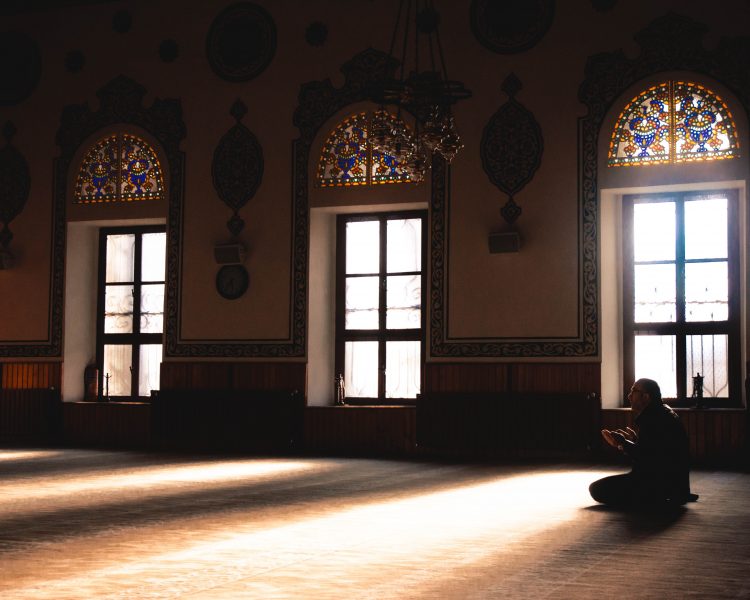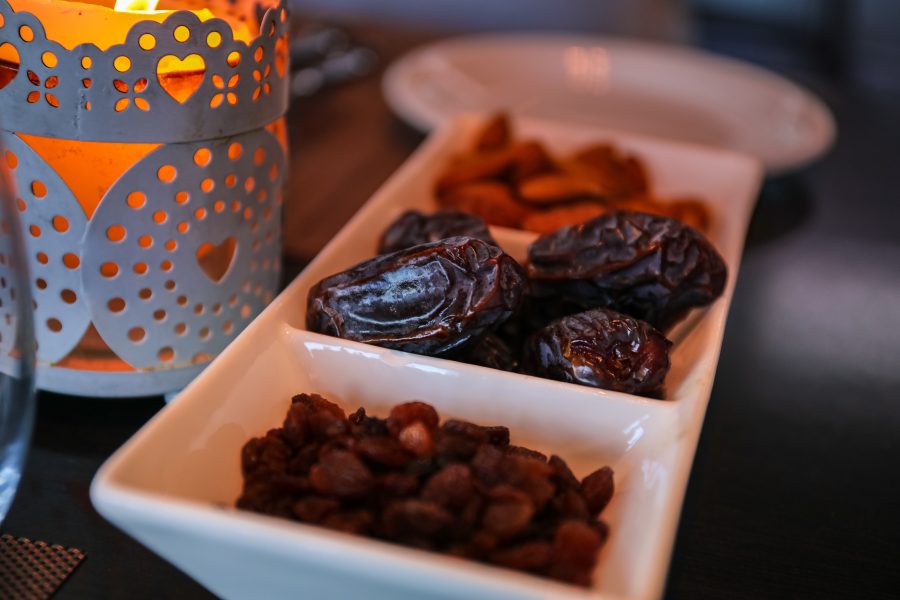We are now in the blessed month of Rajab, kick starting the spiritual season for believers. With just 60 days to Ramadhan, you may feel as though you are not spiritually ready. However, Rajab offers you the opportunity to draw closer to Him; to connect, and cleanse ourselves; and to sow the seeds that you wish to reap by Ramadhan.
As the new year entered, many of us will have reflected on our goals and whetted our appetite for self-improvement and exploration. We may have set new targets for our health, our fitness, our reading goal or learnign a new hobby or skill.
However, there is a part of our lives which ranks higher than any other; our spiritual journey. As we have pushed ourselves in other aspects of our life, we should aim to strive harder to earn His pleasure. Rajab is here; there is no better time to return to Him, than in the Month of Allah.
What is Rajab?
The Prophet (saw) said, ‘Rajab is the month of Allah, Sha‘ban is my month and Ramadan is the month of my Ummah.’ (as-Suyuti, Al-Jami).
For a month to be attributed to Allah is a great honour. We should pay special attention for it, for this very reason alone, and push ourselves to make an extra effort. Alongside having this honour, Rajab is the first of the four sacred months, a month in which fighting was prohibited (although the majority of scholars are of the view this was subsequently abrogated).
“Verily, the number of months with Allah is twelve months (in a year), so was it ordained by Allah on the Day when He created the heavens and the earth; of them, four are Sacred. That is the right religion, so wrong not yourselves therein.” (Quran 9:36)
The Prophet (saw) referred to it as Rajab of Mudar, because many of the Arab tribes changed the order of the months out of expediency, in times of war. Only the tribe of Mudar did not tamper with its timing and were known to respect it highly.
Its root letters, ra’, jeem, and ba’ indicate “supporting and strengthening something with another”; meaning a time where something was venerated. It was therefore called Rajab; even in pre-Islamic times, the Quraysh would venerate this month in particular and would refrain from fighting. Thereafter, in Islam, it too was venerated.
Such was its virtue amongst the Arabs that some scholars have stated that the month of Rajab has fourteen names, others stated it had seventeen, including: the month of Allah, Rajab Mudar, Al-Asam (“silent or deafening” as no sound of fighting was heard within it), Al-Asabb (due to the “pouring” of Mercy), Manafis, Mudahhir, Ma‘ali, Muqeem (eternal), Hiram, Muqashqish, Mubri’, Fard (Separate), Rajm (as it was believed devils were stoned in it), Manasil Al-Aalah referring to the removal of the iron parts of the spears and arrows in this time, and Munzi‘ Al-Asinnah, as reported by Abu Rajaa’ al-‘Ataridi:
“When the month of Rajab came, we would say Munassil al-Asinnah [the one that causes the sharp heads of weapons to be taken off], and we would not leave any spear or arrow that had an iron piece in it but we would take the metal head off and put it aside during the month of Rajab.” (Bukhari).
Like all sacred months, Rajab has a special status. Allah says “so wrong not yourselves therein…” (Qur’an 9:36). We should therefore pay particular attention to the sanctity of these months, as sins committed at such a time are even greater in His Sight. It also means that good deeds performed at such a time are most precious and greater in reward.
Rajab: A Month of Victory
Rajab was a month marked by victories in our illustrious history. Events which took place within this month changed the course of Islamic History.
The battle of Tabouk occurred in Rajab 9AH, and marked a momentous victory for the Muslims. An army of 30,000 Muslims travelled from Madina to al-Sham (modern day Syria) for the battle, under the leadership of the Prophet (saw). However, when the Roman armies heard of the size of the Muslim army, they surrendered and agreed to pay the jizya. Therefore, the Muslims could occupy Tabuk without the need for combat. The victory cemented Islam’s dominion over the Arabian peninsula.
It was also in this month that Jerusalem was liberated by Salahuddin in 583 AH (September/October 1187). This was an immense victory, restoring the third holiest site, Masjid al-Aqsa to the Muslims, after years of oppression and bloodshed under the Crusaders.

By reflecting on these blessed victories, we took can focus on the blessings He has bestowed upon us, and increase in gratitude to Allah. We can study these events more closely, and compare them to the situations we face today. Although we may not be in identical situations, we have our own struggles and tests that we face today. The pandemic brings with it waves of uncertainty, and concern for the present, and the future. We can use examples from the past, how they would remain steadfast within moments of despair; how Allah showered them with mercy and victory. In this month, we can call out to Him, to reap the outpour that is held within these sacred days.
Time to Sow the Seeds

In this sacred month, there is an added benefit for us as believers to exert ourselves, as it is a month which is showered with His mercy. We can call out to Him in this month, to cleanse ourselves of past mistakes, and ask for forgiveness.
Ibn Rajab al-Hanbali described Rajab as the key to the months of goodness and blessings that follow it.
Abu Bakr b. al-Warraq al-Balkhi said: “Rajab is the month to sow the seeds; Sha’ban is the month to irrigate the crop; and Ramadan is the month to reap the harvest.”
He similarly likened Rajab to “the wind; Sha’ban is like the water-laden clouds; and Ramadan is like the rain.”
Others described: “The year in its entirety is like a tree: during Rajab its buds sprout; during Sha’ban it sends forth its branches; during Ramadan its fruit ripens; and the believers are the farmhands who harvest that fruit.”
The Companions of the Prophet (saw) would spend six months prior to Ramadhan preparing for its coming. With Ramadhan less than 60 days away there is no better time to start sowing those seeds.
We can do this by strengthening our own faith, and connected to Him. Although no specific acts of worship have been singled out for this time, you can do this in various ways – all with the common end goal of gaining His pleasure
1. Seek forgiveness
As humans, we are prone to make mistakes. We are not expected to be sin free, mistake free, and perfect. However, we should strive to seek His forgiveness; and there is no better time than Rajab, which scholars have described as a month of forgiveness.

Mulla ‘Ali Qari (rahimahullah) writes that he heard his seniors reciting istighfar abundantly in Rajab. (Al-Adab fi Rajab)
“If anyone constantly seeks pardon (from Allah), Allah will appoint for him a way out of every distress; and a relief from every anxiety; and will provide sustenance for him from where he expects not.” (Abu Dawud)
2. Recite Qur’an:
The Quran is a guidance for our way of life, and we should make a habit of reading it daily. The more you read the Quran, the more it will become an imperative part of your day. There is reward in reading it; indeed our ranks in Paradise will be determined by how much we recited sincerely in this world:
“It will be said to the companion of the Quran: Recite and ascend as you recited in the world, for your rank is determined by the last verse you recite.” (at-Tirmidhi)
3. Fast
Fasting within a sacred month brings many virtues and rewards. Although there is no basis for specifically singling out Rajab for fasting – some scholars even took the opposite view – due it being a sacred month, we should aim to increase in fasting. We should particularly focus on the Sunnah days of Monday, Thursday and the White Days of the month (13th, 14th and 15th in the lunar calendar).
“Fast during the sacred months and leave (fasting).” (Ahmad and Abu Dawud)

Many of the early generations would fast in these months, such as Ibn Umar and Hassan Al Basri. Sufyan Al Thawri would say, “The four sacred months, I love and prefer to fast in them.”
As Ramadhan is drawing nearer, fasting in Rajab will help prepare for you for those longer fasts. Also if you have any to make up, Rajab would be the perfect opportunity to.
“Indeed your Lord said: ‘Every good deed is rewarded with ten of the same up to seven hundred times over, except for fasting. Fasting is for Me, and I shall reward for it.‘ (Muslim)
4. Give in charity
In a month, where Allah showers us with His mercy, we should show mercy to His creation. Show gratitude for what you have been blessed with, by helping others who are calling out for your help. We have learnt through this pandemic, that we are not guaranteed another day. Use this opportunity to give, whilst you can.
When a person dies, all their deeds end except three: a continuing charity, beneficial knowledge and a child who prays for them.” (Muslim)
Cleanse your hearts

Beside these four acts of worship, there are many other ways in which you can grow closer to Him. Increase your acts of worship, push yourself by performing night prayers and offer optional prayers alongside the compulsory ones. Increase your dhikr and supplication, and be mindful of how you treat others.
As one of the poets said:
So cleanse your darkened hearts within Rajab;
with deeds that spare the soul Hellfire’s wrath.One of the sacred months has come along;
no one who calls on God will be forlorn.Heaven is for the ones who cleanse their hearts
with lewd indecent deeds they’ll have no part.
The Month of Rajab is an auspicious month, in which we are gifted the opportunity to prepare for Ramadhan. Once it arrives, if we are already feeling more connected to our faith, then we will taste the full sweetness of Ramadhan.
“O Allah, grant us barakah (blessing) during the months of Rajab and Sha’ban, and allow us to reach the month of Ramadhan.” (Shu’ab al-Iman; Ibn as-Sunni; Al-Adkhar)